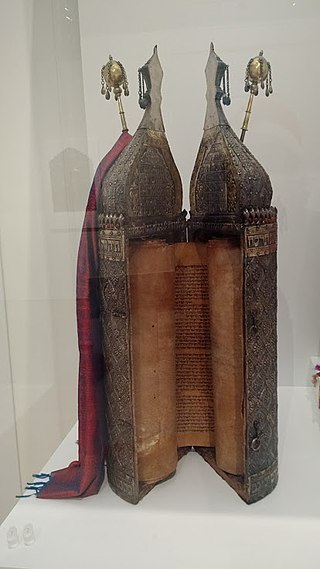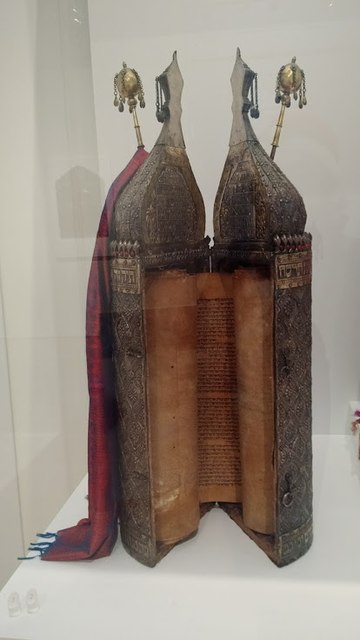The Tawrat (Arabic: توراة), also romanized as Tawrah or Taurat, is the Arabic-language name for the Torah within its context as an Islamic holy book believed by Muslims to have been given by God to the prophets and messengers amongst the Children of Israel. In the Qur'an, the word 'Tawrat' occurs eighteen times. When referring to traditions from the Tawrat, Muslims have not only identified it with the Pentateuch (the five books of Moses), but also with the other books of the Hebrew Bible.[1]

The Islamic methodology of tafsir al-Qur'an bi-l-Kitab (Arabic: تفسير القرآن بالكتاب) refers to interpreting the Qur'an with/through the Bible.[2] This approach adopts canonical Arabic versions of the Bible, including the Tawrat and the Injil, both to illuminate and to add exegetical depth to the reading of the Qur'an. Notable Muslim mufassirun (commentators) of the Bible and Qur'an who weaved biblical texts together with Qur'anic ones include Abu al-Hakam Abd al-Salam ibn al-Ishbili of al-Andalus and Ibrahim ibn Umar ibn Hasan al-Biqa'i.[2]
References
Wikiwand in your browser!
Seamless Wikipedia browsing. On steroids.
Every time you click a link to Wikipedia, Wiktionary or Wikiquote in your browser's search results, it will show the modern Wikiwand interface.
Wikiwand extension is a five stars, simple, with minimum permission required to keep your browsing private, safe and transparent.
